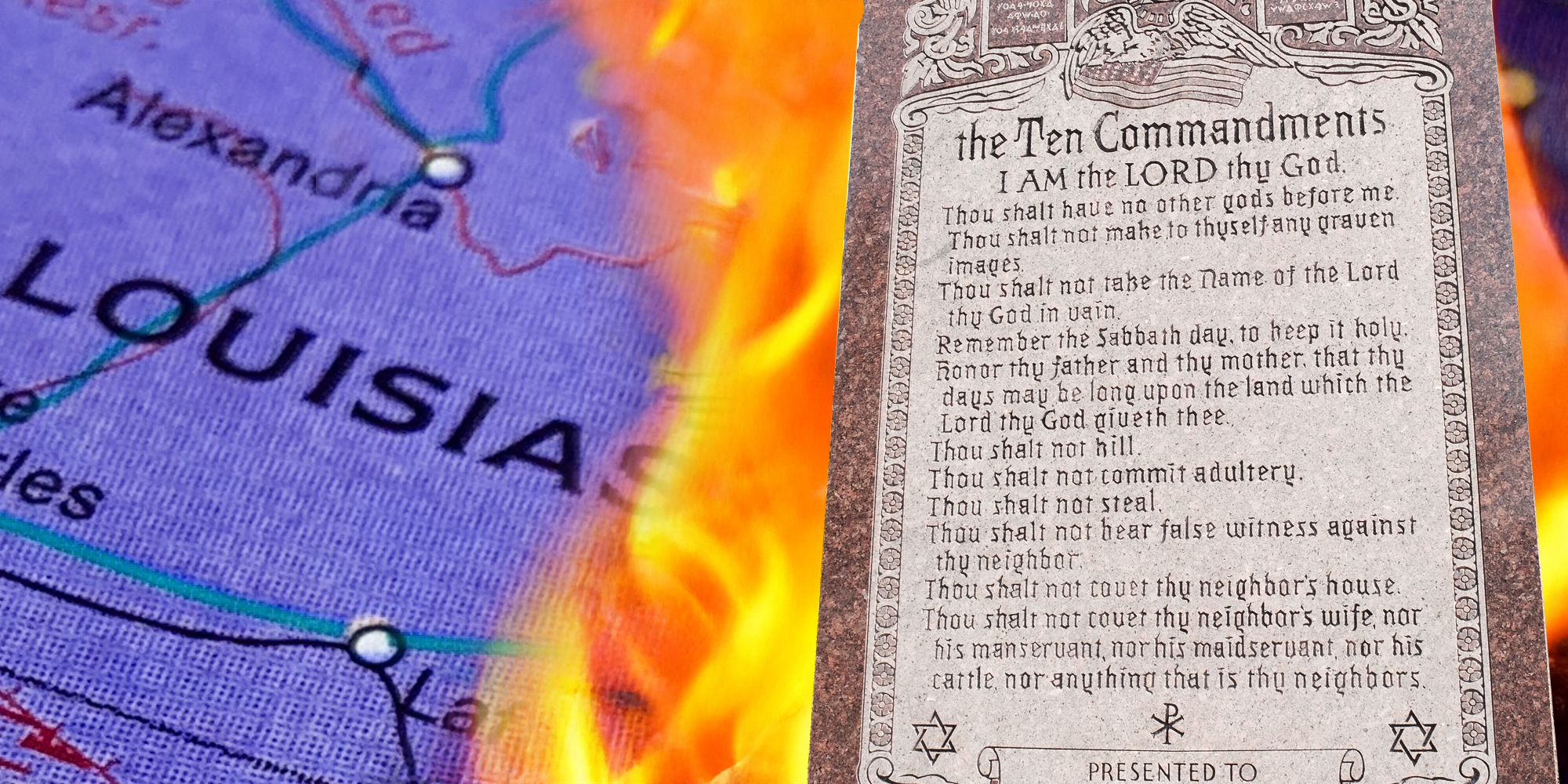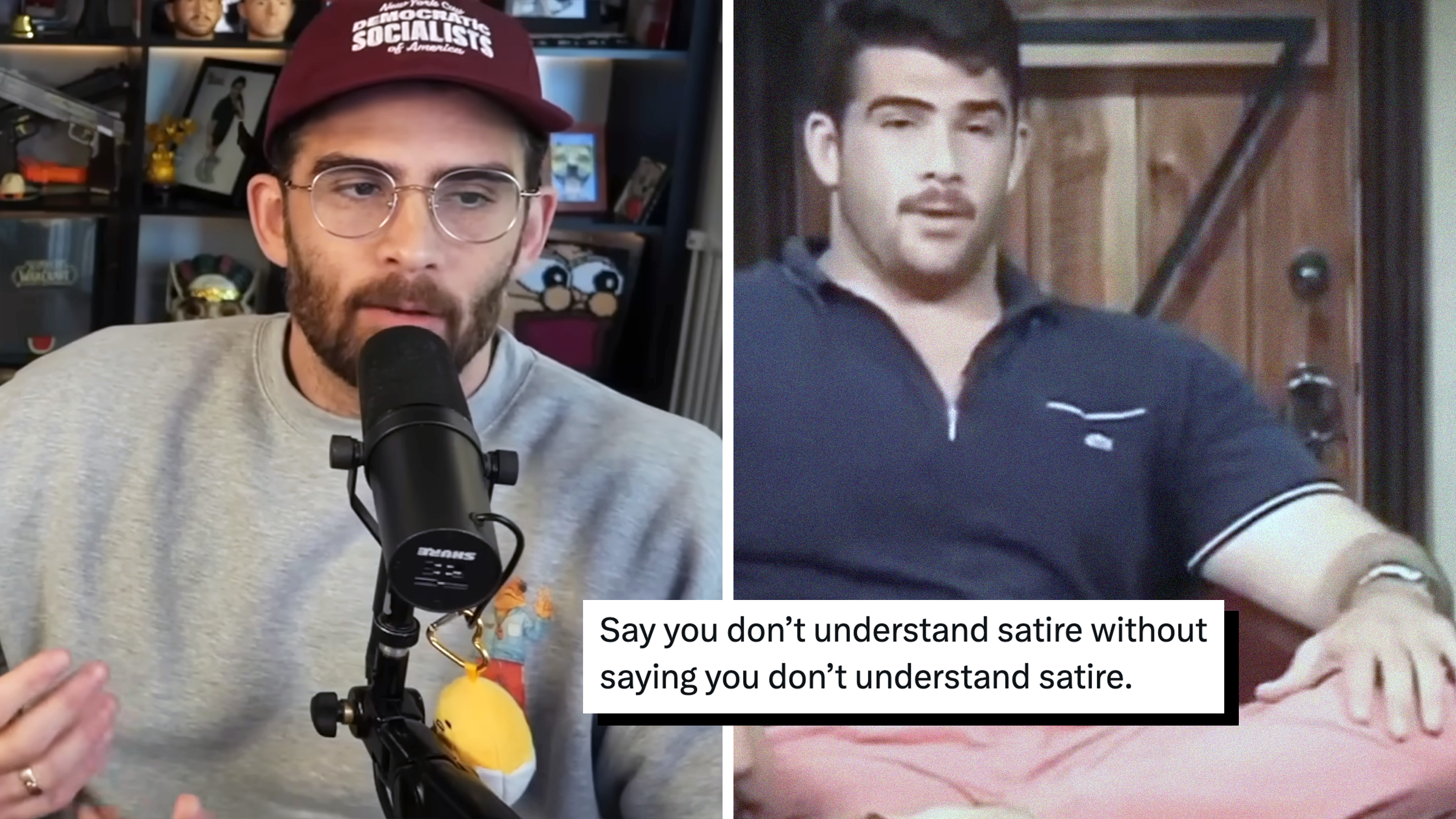While Louisiana public schools land near the bottom in academic performance nationwide, they are now first in controversy after the state passed a new law requiring the 10 Commandments to be displayed in classrooms
The legislation sparked an ongoing legal battle over the First Amendment and the separation of church and state.
As the bill plays out in court, the Louisiana Department of Education bore the brunt of the backlash, receiving complaints from residents and teachers about the department's dismal standing, the law’s potential overreach, and concerns about enforcement.
Louisiana Gov. Jeff Landry (R) signed House Bill 71 in June, requiring all public schools to display a poster or framed document of the 10 Commandments.
The law was part of Landry’s “Dream Big” education reform package, a series of policies that focused on enforcing conservative values in state schools.
In addition to the 10 Commandments, bills passed that required teachers to use students' pronouns assigned at birth and walked back immunization requirements,
The package did focus on some non-political educational matters, like increasing scholarship opportunities, tweaking literacy standards, and pushing for more parental involvement in school.
But the biggest outcry came over the 10 Commandments.
In an August interview with the Washington Post, Landry dismissed the backlash, saying concerned parents should “just tell the child not to look.”
That contradicts the text of the bill, which requires the posters to be of a certain size and orders them to use large, "easily readable" fonts.
In an interview with Fox News, Landry reiterated the bill was ideological in nature.
“This country was founded on Judeo-Christian principles and every time we steer away from that, we have problems in our nation,” he said.
Emails to the Louisiana Department of Education, obtained by the Daily Dot through a public records request, showed that many didn’t agree with his reasoning, prodding the department to focus on schooling instead of Christian morality.
“Louisiana has the nation’s third lowest child literacy rate so many students won’t be able to read the Ten Commandments,” wrote one citizen. “Maybe you need to work on this.”
“The Ten Commandments do not belong in public schools. You [crossed] the line of separation of church and state,” wrote another. “Being 47th in school rankings, I would think you have a lot more work to do academically speaking.”
In studies on the quality of public education in the country, Louisiana routinely ranks in the bottom five.
The Daily Dot obtained five months of external communications about the plan, including praise, concerns, and vehement criticism.
Teachers in the state raised questions about the logistics of their classrooms after the law went into effect.
One wrote to Louisiana Superintendent of Education Dr. Cade Brumley, wondering what they could say if a student asked them about the 10 Commandments.
“Am I allowed to answer their questions? If so, what are the parameters my responses must stay within? If students request that we pray with them, are we allowed to do so?” she asked.
The law also attracted opportunists willing to support the cause free of cost.
An administrative assistant for Bibles in School offered donations of religious books for public school libraries. The World Video Bible School promised to provide complimentary digital downloads of their 10 Commandments posters.
But dissenting comments were more frequent. One parent voiced concerns for his two daughters about how the law implies a favored religion in Louisiana schools.
He wrote that the First Commandment, “I am the LORD thy God. Thou shalt have no other gods before me,” was offensive to his daughters’ beliefs—who he said were pagans—and threatened to pull them from the public school system.
“They will not attend classes in, or participate in any activities held in, any rooms in which such overtly religious content is displayed. They will therefore need accommodations to preserve their religious freedoms. What accommodations will be made available and what is the process for obtaining them?”
That parent repeatedly reached out for answers, contacting a member of the Terrebonne Parish School Board. But when that official went to Brumley to ask for guidance on how to respond, the superintendent couldn’t help.
“As I’m a party in this litigation I can’t provide guidance at the time,” Brumley wrote in August.
Several months later, that lawsuit Brumley referenced, brought by concerned parents, won a temporary injunction against the law.
A federal judge found sufficient evidence that the 10 Commandments law infringed on Louisiana citizens’ First Amendment rights.
It was a concern that parents flagged months earlier to the Department of Education.
“Maybe you should check in with Kentucky,” wrote one resident. “In 1980 the Supreme Court struck down Kentucky’s attempt to require posting the Ten Commandments in public school classrooms.”
That ruling was cited in the first sentence of the judge's injunction, where he said Louisiana lawmakers flouted 45 years of “longstanding precedent.”
But while many flagged the First Amendment, most wrote in mock Landry’s “Dream Big” package.
“As a former school official," one wrote in to say, “I was excited to read the local media story entitled, 'Governor signs slew of education bills—Measures promise ‘drastic change’ for schools.' Finally the academic deficiencies of our kids were addressed."
“However, my enthusiasm plunged when I saw that only 3 even remotely addressed actual attempts at academic improvement in the classroom … But I am sure Landry and some parents are happy because they got their ways about LGBTQ restrictions,” matters, the citizen said that have "nothing to do with helping kids achieve academically.”
Eighteen total bills were part of Landry’s program, but few included changes to improve how students were taught.
One bill removed a COVID-19 vaccine requirement, in addition to the other immunization changes, while the “Let Kids be Kids” bill limited the discussion of gender and sexuality in public schools.
The “Let Teachers Teach” law encouraged tweaking required programs and training for teachers so they needed to be certified less frequently.
Another allowed chaplains to volunteer in public schools.
Even Christian supporters of Landry wrote in to raise concerns.
“While I think rules are essential for life, I wonder about how that makes the one non-Christian child in the room feel?” they asked.
While Brumley did not respond to most emails, in statements sent to media outlets, he reiterated support for the reforms.
“The Ten Commandments law passed with overwhelming support in Louisiana’s state legislature and was enthusiastically signed by our governor. I look forward to implementing the law and defending Louisiana’s sovereign interest to select classroom content fundamental to America’s foundation," he said.
But given the raft of complaints and lawsuits, it seems Lousianans don’t wholly agree.
Internet culture is chaotic—but we’ll break it down for you in one daily email. Sign up for the Daily Dot’s web_crawlr newsletter here. You’ll get the best (and worst) of the internet straight into your inbox.






